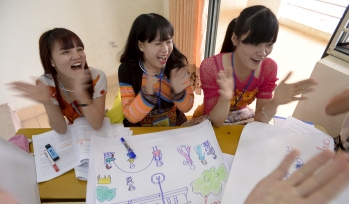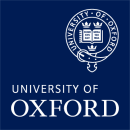
Breadcrumb
Where is value added? 2016-17 Young Lives School Survey preliminary findings launched
Last Monday we shared findings from our School Surveys, conducted during the 2016-17 school year, at a special launch event in Oxford.
Over 60 leading academics and policy-makers interested in using our latest research to consider implications for education policy and practice came together for an afternoon of discussion, debate and forward-planning.
Young Lives researchers Dr Caine Rolleston, Bridget Azubuike, Padmini Iyer, Rhiannon Moore and Jack Rossiter delivered presentations to make sense of emerging findings from the school effectiveness surveys conducted in Ethiopia, India and Vietnam, and Santiago Cueto presented preliminary findings from the 2017 school survey conducted in Peru.
The school effectiveness research is designed to understand how much value is added by one year of schooling across these diverse contexts and which aspects of these systems - teachers' knowledge, pedagogic methods and so on - make the most difference to student learning outcomes.
Director of Young Lives, Jo Boyden said:
'Educational aspirations among Young Lives children and their parents are astonishingly high. But schools do not always match up to their ambitions. The school-effectiveness research provides unique insights into the performance of school systems in the four study countries, showing which types of schools add the most to children's learning and which are the most equitable in their support for children from the poorest households.'
The school effectiveness data represent an opportunity to revisit the children from our Younger Cohort and their classmates at age 15, focusing in particular on benchmarking levels of student attainment and progress in defined learning areas; school effectiveness and educational transitions.
Key findings shared at the launch event include:
- Our assessment of 21st century skills among Vietnamese students finds that they are not just rote learners, and assessing skills like problem solving and critical thinking offers another dimension to how we understand school effectiveness and quality.
- In India, private-unaided schools achieve higher test scores, add more value and are attended by a more advantaged subset of children. However, even within private schools, the most effective schools are attended by students who are already more advantaged, which has considerable implications for equity.
- Findings from our school survey in Ethiopia indicate that schools in more advantaged areas are more effective, but also more equalising compared to schools in disadvantaged areas – which may increase inequalities in student learning outcomes.
Lucy Crehan, of ‘Cleverlands’ acclaim, led a discussion drawing on these key insights and how they complement the patterns from the Young Lives evidence at child, household and community levels, indicating the crucial role that formal schooling plays in the lives of Young Lives children.
Reflecting on the event, Young Lives Education Research Officer Padmini said:
‘It was fantastic to have so much engagement and discussion around our emerging findings at the event. As encouraged by researchers and policy-makers in the audience, we’re looking forward to further investigating the characteristics of the most effective schools in our study countries – what goes on in the classrooms, what motivates teachers and how does all this contribute to student learning outcomes – through further analysis of the school survey data and an upcoming classroom observation study in India.’
The launch event was livestreamed, now available on our YouTube channel and you can also view our SlideShare presentation introducing the latest School Surveys here.
More information on the 2016-17 Young Lives School Surveys and associated blogs can be found on our website here. The school effectiveness data will be publicly archived in June 2018

